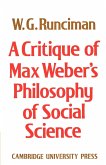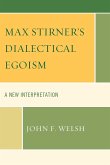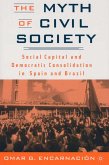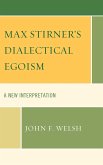An in-depth interpretation of Max Weber as a political theorist of civil society.
This book is an in-depth interpretation of Max Weber as a political theorist of civil society. On the one hand, it reads Weber's ideas from the perspective of modern political thought, rather than the modern social sciences; on the other, it offers a liberal assessment of this complex political thinker without attempting to apologize for his shortcomings. Through an alternative reading of Weber's religious, epistemological and political writings, the book shows Weber's concern with public citizenship in a modern mass democracy and civil society as its cultivating ground. Kim argues Weber's political thought, thus recast, was deeply informed by Kant, Hegel, Nietzsche and other German political thinkers and also reveals an affinity to the liberal-republican tradition best represented by Mill and Tocqueville. Kim has effectively resuscitated Weber as a political thinker for our time in which civic virtues and civil society have once again become one of the dominant issues.
Table of content:
Acknowledgements; Part I. Of 'Sect Man': The Modern Self and Civil Society in Max Weber: 1. Agency, citizenship and civil society; 2. Reading Weber: between politics and science; 3. In search of the Protestant ethic thesis; 4. Outline of the argument; Part II. The Protestant Ethic and the Spirit of Individualism: 5. Introduction: 'the last of our heroisms'; 6. 'A rationalization toward an irrational conduct of life'; 7. Calling: sanctification and regimentation of everyday life; 8. Predestination: objectification of the world and disempowerment of the self; 9. Empowering the individual agency: self-mastery and discipline; 10. Conclusion: value, rationality and freedom; Part III. The Protestant Sects and the Spirit of Civil Society: 11. Introduction: sociability of the Puritan Berufsmensch; 12. Gemeinschaft, Gesellschaft and Amerikanismus; 13. Modes of sociability: America versus Europe; 14. Sect contra church: particularism and voluntarism; 15. Secularization of charisma: from sect to status group and bureaucracy; 16. Conclusion: The public and the private; Part IV. Politics, Science, Ethics: 17. Introduction: Götterdämmerung; 18. Disenchantment and reenchantment; 19. Conviction, responsibility and decision; 20. Practice of the self I: realpolitik; 21. Practice of the self II: ideal type; 22. Conclusion: modernity, conscience and duty; Part V. Liberalism, Nationalism and Civil Society: 23. Introduction: liberalism and nationalism; 24. National identities, nation-states and the political; 25. Nationalism, citizenship and personality; 26. Politics of the classes: refeudalization and embourgeoisement; 27. Politics of checks and balances: corporatism and parliamentarianism; 28. Conclusion: 'the school of men'; Part VI. Max Weber's Politics of Civil Society: 29. Statecraft and soulcraft in Max Weber; 30. Purpose, contestation and the political; 31. Bowling alone; References; Index.
This book is an in-depth interpretation of Max Weber as a political theorist of civil society. On the one hand, it reads Weber's ideas from the perspective of modern political thought, rather than the modern social sciences; on the other, it offers a liberal assessment of this complex political thinker without attempting to apologize for his shortcomings. Through an alternative reading of Weber's religious, epistemological and political writings, the book shows Weber's concern with public citizenship in a modern mass democracy and civil society as its cultivating ground. Kim argues Weber's political thought, thus recast, was deeply informed by Kant, Hegel, Nietzsche and other German political thinkers and also reveals an affinity to the liberal-republican tradition best represented by Mill and Tocqueville. Kim has effectively resuscitated Weber as a political thinker for our time in which civic virtues and civil society have once again become one of the dominant issues.
Table of content:
Acknowledgements; Part I. Of 'Sect Man': The Modern Self and Civil Society in Max Weber: 1. Agency, citizenship and civil society; 2. Reading Weber: between politics and science; 3. In search of the Protestant ethic thesis; 4. Outline of the argument; Part II. The Protestant Ethic and the Spirit of Individualism: 5. Introduction: 'the last of our heroisms'; 6. 'A rationalization toward an irrational conduct of life'; 7. Calling: sanctification and regimentation of everyday life; 8. Predestination: objectification of the world and disempowerment of the self; 9. Empowering the individual agency: self-mastery and discipline; 10. Conclusion: value, rationality and freedom; Part III. The Protestant Sects and the Spirit of Civil Society: 11. Introduction: sociability of the Puritan Berufsmensch; 12. Gemeinschaft, Gesellschaft and Amerikanismus; 13. Modes of sociability: America versus Europe; 14. Sect contra church: particularism and voluntarism; 15. Secularization of charisma: from sect to status group and bureaucracy; 16. Conclusion: The public and the private; Part IV. Politics, Science, Ethics: 17. Introduction: Götterdämmerung; 18. Disenchantment and reenchantment; 19. Conviction, responsibility and decision; 20. Practice of the self I: realpolitik; 21. Practice of the self II: ideal type; 22. Conclusion: modernity, conscience and duty; Part V. Liberalism, Nationalism and Civil Society: 23. Introduction: liberalism and nationalism; 24. National identities, nation-states and the political; 25. Nationalism, citizenship and personality; 26. Politics of the classes: refeudalization and embourgeoisement; 27. Politics of checks and balances: corporatism and parliamentarianism; 28. Conclusion: 'the school of men'; Part VI. Max Weber's Politics of Civil Society: 29. Statecraft and soulcraft in Max Weber; 30. Purpose, contestation and the political; 31. Bowling alone; References; Index.








